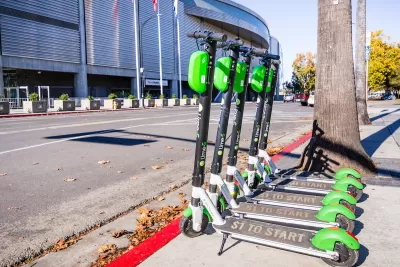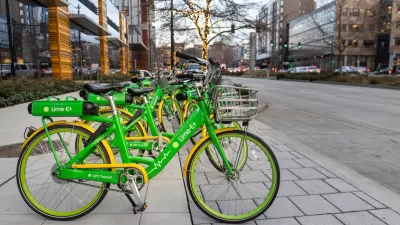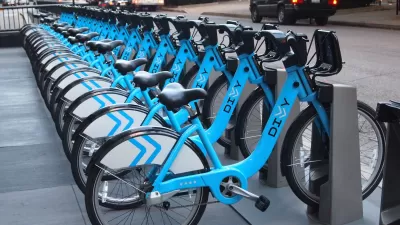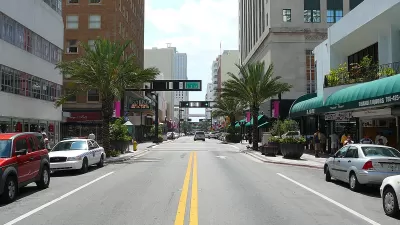Eight years after shared e-scooters were first introduced in US cities, the industry still teeters on the edge of success, hindered in part by limited infrastructure.

What’s the status of the U.S. e-scooter industry eight years after its launch? Syris Valentine assesses the landscape in an article for Grist, writing that “The true climate benefits of these fleets depends upon how companies deploy and manage them, and safety remains a concern as injuries climb. But industry leaders appear intent on ensuring their scooters are as sustainable and safe as possible.”
According to Valentine, researchers say that the two biggest factors that will determine the climate impact of scooters are how users ride them and how operators manage them throughout their life cycle.
If scooter rides replace walking, their impact on emissions will be minimal. “But several studies, including one by the Portland Bureau of Transportation and another, funded by Lime, by a German research institute, have found that though anywhere from a third to well over half of scooter users would have walked instead, enough other trips that would have been taken by car were not.” However, the energy and infrastructure — including large cargo vans — required to manage and redistribute scooters in many urban environments can negate some of their environmental benefits.
Meanwhile, the lack of safe infrastructure in most U.S. cities is a bigger obstacle that e-scooter operators don’t have control over: “with most American cities designed to promote cars over all other forms of transit, the health of scooter users is, like those of pedestrians and cyclists, at risk once wheels hit pavement.”
FULL STORY: 8 years into America’s e-scooter experiment, what have we learned?

Alabama: Trump Terminates Settlements for Black Communities Harmed By Raw Sewage
Trump deemed the landmark civil rights agreement “illegal DEI and environmental justice policy.”

Study: Maui’s Plan to Convert Vacation Rentals to Long-Term Housing Could Cause Nearly $1 Billion Economic Loss
The plan would reduce visitor accommodation by 25% resulting in 1,900 jobs lost.

Planetizen Federal Action Tracker
A weekly monitor of how Trump’s orders and actions are impacting planners and planning in America.

Wind Energy on the Rise Despite Federal Policy Reversal
The Trump administration is revoking federal support for renewable energy, but demand for new projects continues unabated.

Passengers Flock to Caltrain After Electrification
The new electric trains are running faster and more reliably, leading to strong ridership growth on the Bay Area rail system.

Texas Churches Rally Behind ‘Yes in God’s Back Yard’ Legislation
Religious leaders want the state to reduce zoning regulations to streamline leasing church-owned land to housing developers.
Urban Design for Planners 1: Software Tools
This six-course series explores essential urban design concepts using open source software and equips planners with the tools they need to participate fully in the urban design process.
Planning for Universal Design
Learn the tools for implementing Universal Design in planning regulations.
Caltrans
Smith Gee Studio
Institute for Housing and Urban Development Studies (IHS)
City of Grandview
Harvard GSD Executive Education
Toledo-Lucas County Plan Commissions
Salt Lake City
NYU Wagner Graduate School of Public Service





























